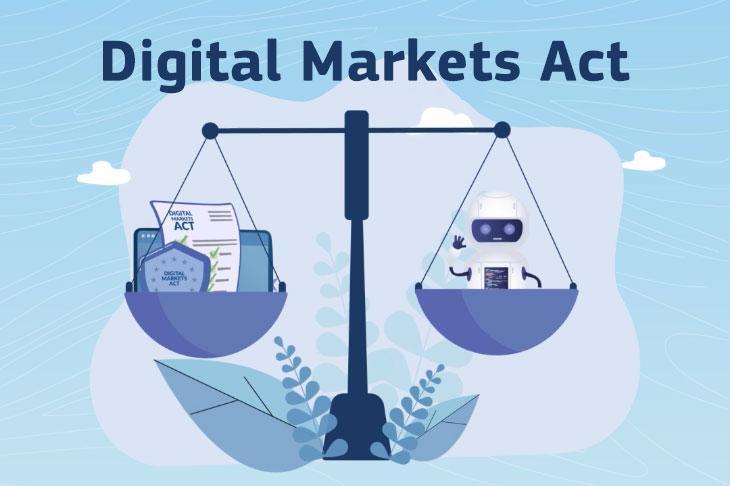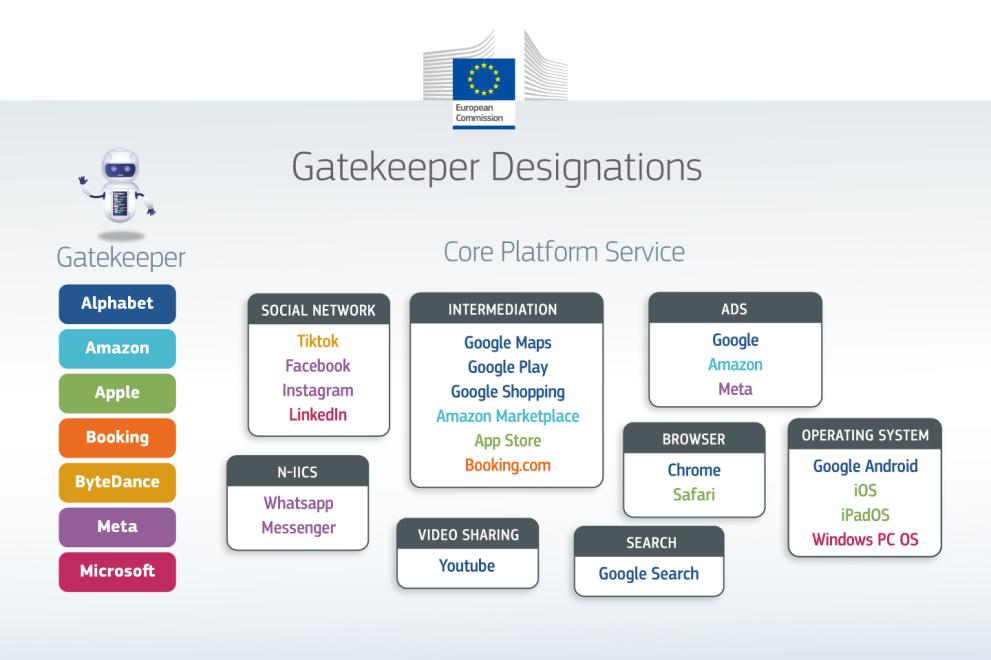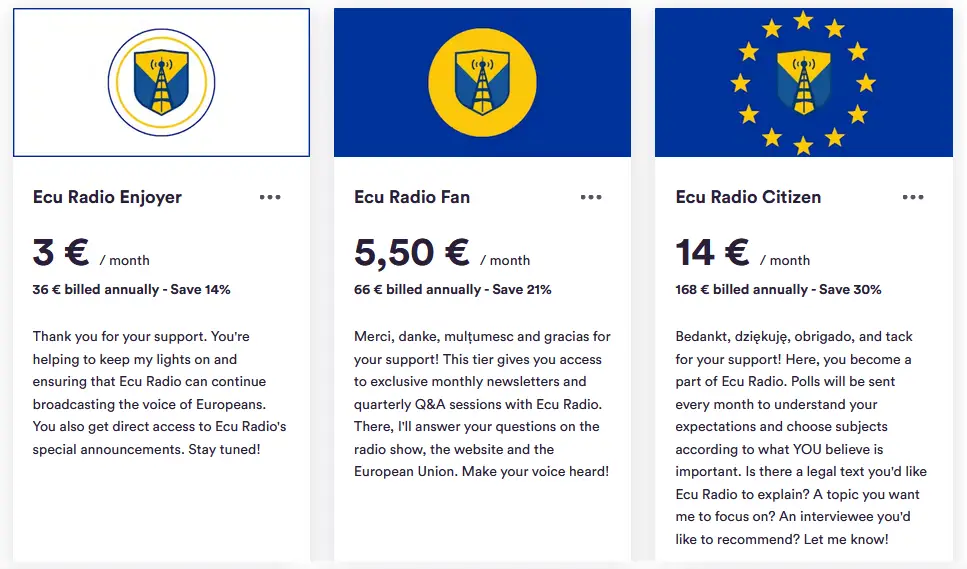The Digital Markets Act (DMA) is a landmark EU law designed to prevent large digital platforms (designated as “gatekeepers” by the Commission) from abusing their dominant positions in the digital industry, to curb unfair practices and to ensure fairness and openness in the digital sector.
These gatekeepers are identified based on criteria indicating a significant impact on the internal market, serving as an important access point for business users to reach end users, and having an entrenched and durable market position.
In other words, the purpose of the DMA is to mitigate the enshittification of digital platforms, protecting EU consumers’ and EU businesses’ rights while focusing on reducing the value siphoning they direct against end users and business customers.
Given its goals, the journey of the DMA from proposal to implementation has involved significant pushback. Here is a timeline of key events:

2020 to 2022 - Birth of the Digital Markets Act
- 15 December 2020: The European Commission submits the Digital Markets Act proposal to the European Parliament. The DMA, alongside the Digital Services Act (DSA), is a key part of the Commission’s “Shaping Europe’s Digital Future” strategy for an open, fair, diverse, and democratic digital environment.
- 15 December 2021: Exactly one year after its submission, the European Parliament adopts the DMA text. This opens negotiations with the European Council to finalise the legislation, including specifics on issues like interoperability and user choice regarding browsers and search engines.
- 24 March 2022: The Parliament and the Council, under the administration of the Commission, reach a consensus in a process called the “trilogues”, paving the way for a formal adoption.
- 5 July 2022: The DMA is formally adopted by the Parliament. The Council follows 2 weeks later. The following animation is released to explain the purpose of the DMA to the public.
2020 to 2023 - Lobbying Takes Place against the DMA
- November 2020: A leaked Google lobby strategy reveals efforts to portray the DMA as costly and harmful to innovation and small businesses, involving think tanks, lobbyists, and engagement with the American government.
- June 2021: Apple CEO Tim Cook criticises publicly the DMA, arguing that allowing “sideloading” (installing apps from outside the official App Store) would weaken iPhone security by potentially exposing users to malware.
- January 2022: According to the Financial Times, Google mounts a “last-ditch effort” to influence the final legislation through targeted advertising, emails, and social media campaigns aimed at Brussels politicians and officials.
- April 2022: According to Corporate Europe, Google, Apple, Facebook and others tried to influence the trilogues by pitting the EU Institutions against each other, offering amendments to the text and using meeting to gain access to confidential information.
- September 2023: Tim Cook visits Brussels to meet with EU Commissioner Thierry Breton, personally lobbying on behalf of Apple regarding the DMA’s implications.
2023 - Launch of the Digital Markets Act
- 2 May 2023: The Digital Markets Act officially comes into force. Gatekeepers are now subject to its rules and are expected to implement practices benefiting end users and business users. Examples of required practices include:
- Allowing easy uninstallation of pre-installed applications.
- Offering user choice rather than defaulting to pre-installed applications.
- Providing business users with access to performance data for advertising campaigns and ad pricing.
- Permitting developers to use alternative in-app payment systems.
- Offering interoperability options for messenger services.
- 3 July 2023: This date marks the deadline for platforms to notify the European Commission if they meet the quantitative thresholds defined by Article 3 of the DMA, which indicate a gatekeeper position. These criteria include:
- Significant impact on the internal market.
- Providing a core platform service that is an important gateway for business users to reach end users.
- Enjoying an entrenched and durable position.
- Meeting specific revenue (€7.5 billion annual EU turnover or €75 billion market capitalization) and user number (45 million monthly active end users and 10,000 yearly active business users in the EU) thresholds.
By the deadline, the Commission received notifications from Alphabet, Amazon, Apple, ByteDance (TikTok), Meta (Facebook, Instagram), Microsoft, and Samsung. The Commission subsequently designated several of these as gatekeepers, adding Booking.com in May 2024, while not designating Samsung.

- 7 March 2024: Designated gatekeepers are required to comply with all obligations under the DMA by this date.
2024 - Challenges, Sabotage Attempts and EU Investigations
- December 2023: Apple, Meta, and ByteDance legally challenge their designation as gatekeepers in an attempt to avoid DMA obligations. None were lifted.
- March 2024: Research by Corporate Europe Observatory, LobbyControl, and SOMO reveals that approximately one-fifth of attendees at public workshops organized by the European Commission to test compliance measures were affiliated with Big Tech companies without disclosing this.
- 25 March 2024: Merely two weeks after the compliance deadline, the European Commission opens formal non-compliance investigations against Alphabet, Apple, and Meta. Concerns arise that the measures implemented by these companies may not effectively meet their DMA obligations:
- Investigations against Apple and Alphabet focus on potential breaches related to their app store rules, specifically whether they allow app developers to “steer” consumers to offers outside the app stores free of charge, as required by the DMA.
- An investigation against Alphabet also examines whether it is unfairly favouring its own vertical search services (like Google Shopping and Google Hotels) over rival services.
- An investigation against Apple examines whether the design of its web browser choice screen genuinely allows users to exercise their choice of browser.
- An investigation against Meta assesses whether its “pay or consent” model for users in the EU complies with the DMA’s requirement to obtain explicit consent for combining or cross-using personal data.
- The Commission states its intention to conclude these initial investigations within 12 months.
2025 - Breaches, Fines and Playing with Geopolitics
- 19 April 2025: The European Commission sends two sets of preliminary findings to Alphabet for failing to comply with the DMA, regarding two services for which it has been designated as a gatekeeper:
- Certain features and functionalities of Google Search treat Alphabet’s own services more favourably compared to rival ones, thus not ensuring the transparent, fair and non-discriminatory treatment of third-party services as required by the DMA.
- Its app marketplace Google Play does not comply with the DMA, as app developers are prevented from freely steering consumers to other channels for better offers.
- 23 April 2025: Taking one month longer than the initially stated 12 months, and following extensive dialogue with both companies, the European Commission announces findings of non-compliance against Apple and Meta:
- Apple is found in breach of its anti-steering obligations. The Commission determines that restrictions imposed by Apple prevent app developers from informing customers of alternative offers outside the App Store, steering them there, and allowing purchases. Apple is fined €500 million.
- Meta is found in breach of the obligation to give users a real choice regarding the use of their personal data. The Commission concludes that Meta’s “Consent or Pay” model, which forced EU users of Facebook and Instagram to either consent to personalised advertising or pay a subscription, did not offer a valid alternative that used less personal data while being otherwise equivalent. Meta is fined €200 million.
- The Commission gives 60 days to comply with the DMA obligations or face potential periodic penalty payments, up to 10% of their global annual turnover.
- 24 April 2025: Following the fines, Big Tech companies express frustration and seek intervention from the US administration quite blatantly:
- Meta‘s chief global affairs officer, Joel Kaplan, describes the €200 million fine and required changes as an “attempt to handicap successful American businesses while allowing Chinese and European companies to operate under different standards.”, playing on the ongoing tension between the USA and China. He adds that the Commission “effectively imposes a multi-billion-dollar tariff on Meta while requiring us to offer an inferior service.”
- Kay Hazemi-Jebelli, Senior Director for Europe at the Apple-funded lobbying group Chamber of Progress, calls the fines an “escalation” in transatlantic trade conflict and urges the US administration to focus on the DMA.
- The Trump administration signals a willingness to engage, with National Security Council spokesperson Brian Hughes telling POLITICO that the fines represent a “novel form of economic extortion” that “will not be tolerated by the United States.”
With conclusions still awaiting for Alphabet and Big Tech now dedicated to openly fighting back against the DMA, using the vocabulary of the Trump administration to get its support, it is now up to the Commission to ensure that its laws and decisions are respected.
Diving Deeper within the Digital Markets Act
To learn more about it, the Commission has been compiling numerous supporting materials:
- A dedicated website at this address.
- A Q&A addressing Frequently Asked Questions.
- An easy-to-understand overview.
- A directory for the relevant legislation.
Ecu Radio needs your support
Ecu Radio is an independent news website and podcast show, run full-time by a single dedicated contributor (for now). Support our work, get exclusive perks and help keep us going, starting from only 3 € per month. Let's unleash Europe's potential together!
Click here to support Ecu Radio

